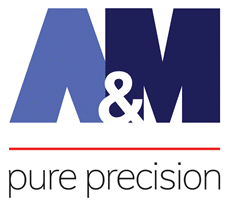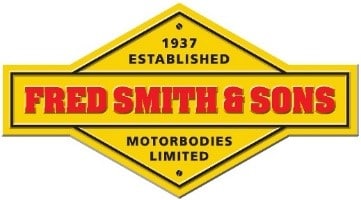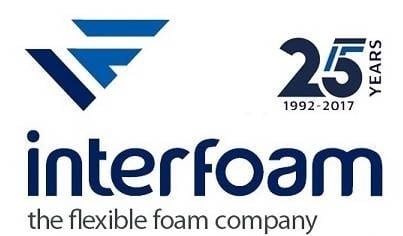
A&M supports the Chamber campaign encouraging the Chancellor to do more to promote the cleanliness of new diesel engines.
The regional automotive industry is not prepared for the continuing slowdown of diesel sales and needs more time to adapt.
CHAMBER FIRES WARNING LETTER TO CHANCELLOR
03 APR 2019
PUBLISHED IN: BLACK COUNTRY CHAMBER OF COMMERCE NEWS
Black Country Chamber has sent a warning letter to Chancellor Phillip Hammond on behalf of the region's automotive sector.
The Black Country Chamber of Commerce has today sent a letter to Chancellor, Philip Hammond, on behalf of the automotive sector in their region, warning of the devastating effects on those supply chain businesses predominantly dealing in the diesel engine market.
Chamber members from across the region have joined forces to lobby the Government and bring their attention to the grave concerns of the tier 1 and 2 automotive suppliers and their readiness to deal with a variety of upcoming policy changes, changes which will see the diesel landscape change dramatically.
In recent months the country has seen a decline in UK car production with the Society for Motoring Manufacturers and Traders outlining their considerable concerns with production levels down 17% by September 2018, revealing a market share for diesel cars in the UK falling from 51.3% in 2015 to 32.4% by March 2018. It is envisaged they will continue to fall drastically to15% by 2025.
Corin Crane, Chief Executive of the Black Country Chamber of Commerce said, "We fear we are now approaching a level of crisis and our local automotive industry is not prepared for the continuing slowdown of diesel sales. After many conversations with our automotive suppliers we must outline the key policy issues and make the Chancellor, and our Government, aware of the potential solutions to mitigate against these challenges. We feel the Government’s language around the future of diesel engines has been incredibly disruptive.
"As a Chamber in the automotive heartland we will continue to lobby for changes to Government policy that hinder our members.”
Letter to Rt Honourable Philip Hammond – Chancellor of the Exchequer

Rt Honourable Philip Hammond
Chancellor of the Exchequer
HM Treasury
1 Horse Guards Parade
SW1A 2HQ
2nd April 2019
Dear Chancellor,
Ref: West Midlands Automotive Supply Chain
I write to you on behalf of West Midlands automotive supply chain businesses and those who are predominantly dealing in diesel engines.
Over the past 18 months, we have seen a decline in UK car production and the Society for Motoring Manufacturers and Traders (SMMT) have outlined their ‘considerable concern’ with production - down 17% in September 2018. There has also been a steady decline in automotive diesel sales in the UK, Europe and Asia. Statistics from AID Data, reveal that market share for diesel cars in the UK fell from 51.3% in October 2015, to 32.4% in March 2018. By 2025, Western European market share could be as low as 15%.
Recent discussions with tier 1 and 2 automotive suppliers in this region have highlighted grave concerns with the sector’s readiness to deal with a variety of upcoming policy challenges. As you will be aware, Jaguar Land Rover (JLR), is the primary Original Equipment Manufacturer in the region. JLR’s Engine Manufacturing Centre (EMC), located at Wolverhampton’s i54 site, is particularly susceptible to the changing diesel landscape and uncertainty around future trading relationships, post-Brexit.
Given the conversations we have had with a range of automotive suppliers in the region recently, we therefore write to you outlining the key policy issues, followed by a brief list of potential solutions to mitigate against these challenges. Unfortunately, we feel that the government’s language around the future of diesel engines has been incredibly disruptive. The arbitrary deadline for diesel sales of 2030 was unnecessary. Although we agree with the overarching rationale behind the ‘Road to Zero’, we feel that there was no need for a date to be outlined and this has scared potential buyers.
The government can and should do more to promote the cleanliness of new diesel engines. The SMMT suggest that it would take 50 new cars today to produce the same amount of pollutant emissions as one vehicle built in 1970. The technological advances and innovative techniques now incorporated into the building of a diesel engine means these engines are impossible to compare.
We fear that we are now approaching a level of crisis and our local automotive industry is not prepared for the continuing slowdown of diesel sales. In the event of a major shock, the kind of which we are all too familiar with, the sector would be devastated. We have seen that shockwaves can ripple from OEM’s throughout their supply chain, with memories of MG Rover still very fresh in the memory across the automotive industry in the West Midlands.
Part of the reason that automotive supply chains have suffered due to a downturn in sales of diesel engines, is that there is little to no emphasis on these tier 3 and 4 suppliers having any conversations or opportunities to discuss supply chain diversification. This sort of diversification is crucial for contingency planning for manufacturers and it should be a key consideration for the upcoming budget announcement, that funding be made available to explore how this sort of supply chain management can be deployed across areas such as the Black Country. Also, a key point for consideration in future budget announcements is lowering taxation on diesel vehicles.
From a workforce perspective, we know that in Germany for instance, in the event of a sudden and severe shock to industry, protocols and support mechanisms are in place to help workers to continue to be paid full wage and/or retrain for separate roles. Without these sorts of measures in place in the UK, we fear that the continued slowdown in diesel production will lead to excessive job losses.
As a Chamber located in an automotive heartland, we will continue to lobby for changes to government policy that hinder our members. We will be asking the Chancellor to make key announcements on diesel taxation policy at the next budget, to ensure that the Black Country and West Midlands automotive industry can continue to thrive. The recent news that Ford will also be cutting jobs across Europe is testament to the ‘perfect storm’ facing the automotive industry.
Our ask is to set up urgently a taskforce with relevant suppliers to look at finding potential solutions. We also would like you to take into consideration the following points:
- A review of government policy and language around the future of diesel engines.
- A fresh approach to engaging with lower tier suppliers to invest in innovation, research and development.
- Exploration of new schemes – such as scrappage schemes and lowering diesel taxation.
- Incentives to explore further, the technology of hybridization, as the immediate future of automotive will not be a move to full electric.
- A contingency or emergency fund to retrain and/or upskill workers effected by the move to 3-day weeks by automotive OEMs.
We also have plenty of qualitative and quantitative research at our disposal, if either of your respective departments were interested in further discussion.
Yours sincerely,
Corin Crane, Chief Executive
Black Country Chamber of Commerce

Tim Kibble, Director,
ZF Lemforder UK
Peter Tack, Managing Director
Lander Automotive

Mark Wingfield, Managing Director,
A & M EDM

Neil Lloyd, Sales Director
FBC Manby Bowdler

James Smith, Company Secretary,
Fred Smith & Sons

Mike Long, Managing Director
Vacuum and Atmosphere Services

Gareth Jones, Joint Managing Director,
In-Comm Training Services

Nick Read, Sales Director,
Interfoam
Jason Mansell, Commercial Director
Gotronic
